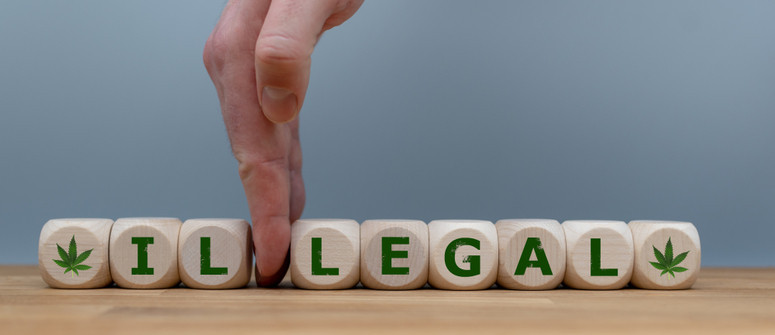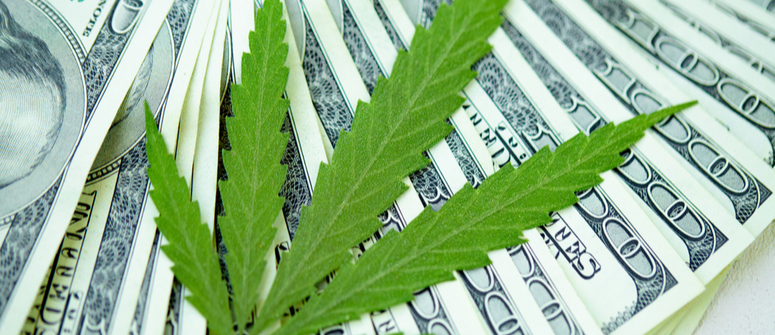Opinion: how would legalizing weed impact the economy?

How significant is the impact of legal cannabis on the economy, and how significant might it be in the near future? When it comes to weed, we can already see some intriguing results. Let's take a dive into the state of cannabis legalization, and how it's affecting the world economy.
Contents:
It wasn’t so long ago that cannabis was nowhere near achieving legal status. But somewhere along the way, public opinion changed. Then, in January 2019, the World Health Organization’s recommendations on cannabis changed. One of the recommendations suggested that CBD products containing less than 2% THC should no longer be subjected to international controls.
The Current State of Cannabis Legalization
At the moment, 50+ countries worldwide have legalized medicinal cannabis, creating programmes that enable their citizens to use it for health issues. A few countries (Uruguay, Canada, South Africa, Georgia, and 15 US states) have also legalized the recreational use of cannabis.
Why such a change? Largely, governments are finally realising that the marijuana sector has the potential to give a significant boost to the economy. Indeed, it’s one of the fastest-growing markets worldwide. In the US alone, nearly 300,000 workers depended on the cannabis industry in 2019.
It’s time to raise the big question: how would legalizing weed affect the economy? The impact is already noticeable, so let’s discuss what we know thus far, and see where the trend could lead us in the future.
How Would Marijuana Legalization Affect the Economy?
Back in 2012, Uruguay announced it would completely legalize the use of recreational cannabis within its borders. The announcement was received with shock by the international community. The country’s goal was realistic: the lawmakers wanted to balance out the situation with cannabis trade and organised crime through sheer regulation.
Just think about it: the government knew that huge sums were present on the black market. By regulating the industry, the country would get some of that money, and it would also make weed consumption potentially safer for its citizens. It’s how cannabis reform began in earnest.
It didn’t take long before voters in Colorado and Washington state supported legislation for non-medicinal use of cannabis in their territories. The federal government stepped back from enforcing limitations, enabling states to explore more liberal solutions. President Obama maintained an interesting viewpoint, saying that marijuana should be treated like cigarettes. By treating recreational weed as a public health issue, it would be easier for the government to deal with it (similarly to what authorities do with alcohol and cigarettes).
We’re coming down to the connection between cannabis and the economy. With legalization, a significant economic boost is possible. Not only through a new production and retail industry, but through associated markets as well. For example, electricians, web designers, and content marketers will also have access to more jobs. And, of course, retail locations will open a significant number of positions, too.
For now, only medical marijuana has been normalised in most regions. But, over time, it’s expected for lawmakers to consider the liberalisation of recreational weed, too.
Predicting the Impact of Marijuana Legalization on the World Economy
Despite its increasingly liberal policies regarding medicinal cannabis, the WHO still treats the substance as a harmful drug if it contains higher levels of THC. The organisation warns about the possibility of impaired cognitive development and psychomotor performance when using weed for recreational purposes. But, when it comes to medicinal use, the effects of CBD are widely recognised. For now, we’ve seen a lot of progress in that department:
- South Korea legalized the controlled use of cannabis for medical purposes.
- UK doctors are allowed to prescribe products containing CBD.
- Medicinal marijuana has been legalized across the US, and a few states have legalized and liberalised recreational use.
- Big corporations are already investing billions in cannabis companies.

Governments are showing a clear interest in moving towards legalization. But, there’s a challenge: it’s difficult for them to find the balance between hard prohibition and very liberal legalization. If the industry isn’t well-regulated, communities won’t feel comfortable with THC-dominant products being sold everywhere.
The issue of cannabis access is serious, and it must be controlled.
As for the economic impact, the industry has huge potential. These are just a few of the many positions it will nurture:
- Cultivation site workers, cultivation supervisors, master growers, extractors, dispensary managers, budtenders, cannabis chefs, lab workers, marketing experts, security staff, and more.
According to information shared by Geneva Business News, the cannabis market is estimated to be worth $344 billion in the US alone (we’re talking about the legal and illicit markets combined).
The legal marijuana industry provided 340,000 jobs in 2019. In the future, we expect more of the stigma to be shed. Cannabis is on its way to becoming mainstream. As long as lawmakers set clear rules on its production and distribution, the industry is expected to generate $85 billion in sales by 2030.
It’s a Process
The process of legalizing medicinal marijuana has taken on a much faster pace around the world. Recreational use will open up even more opportunities and job positions, and its effect on the global economy will be even greater. However, that procedure will take much more time, since the recreational weed industry has to be strictly controlled. First, we’ll have to wait for a larger shift in public opinion. Then, lawmakers can start liberalising the regulations.
Written by Tia M., Editor and Contributor at AskGrowers
.jpg)
.jpg)

.jpg)
